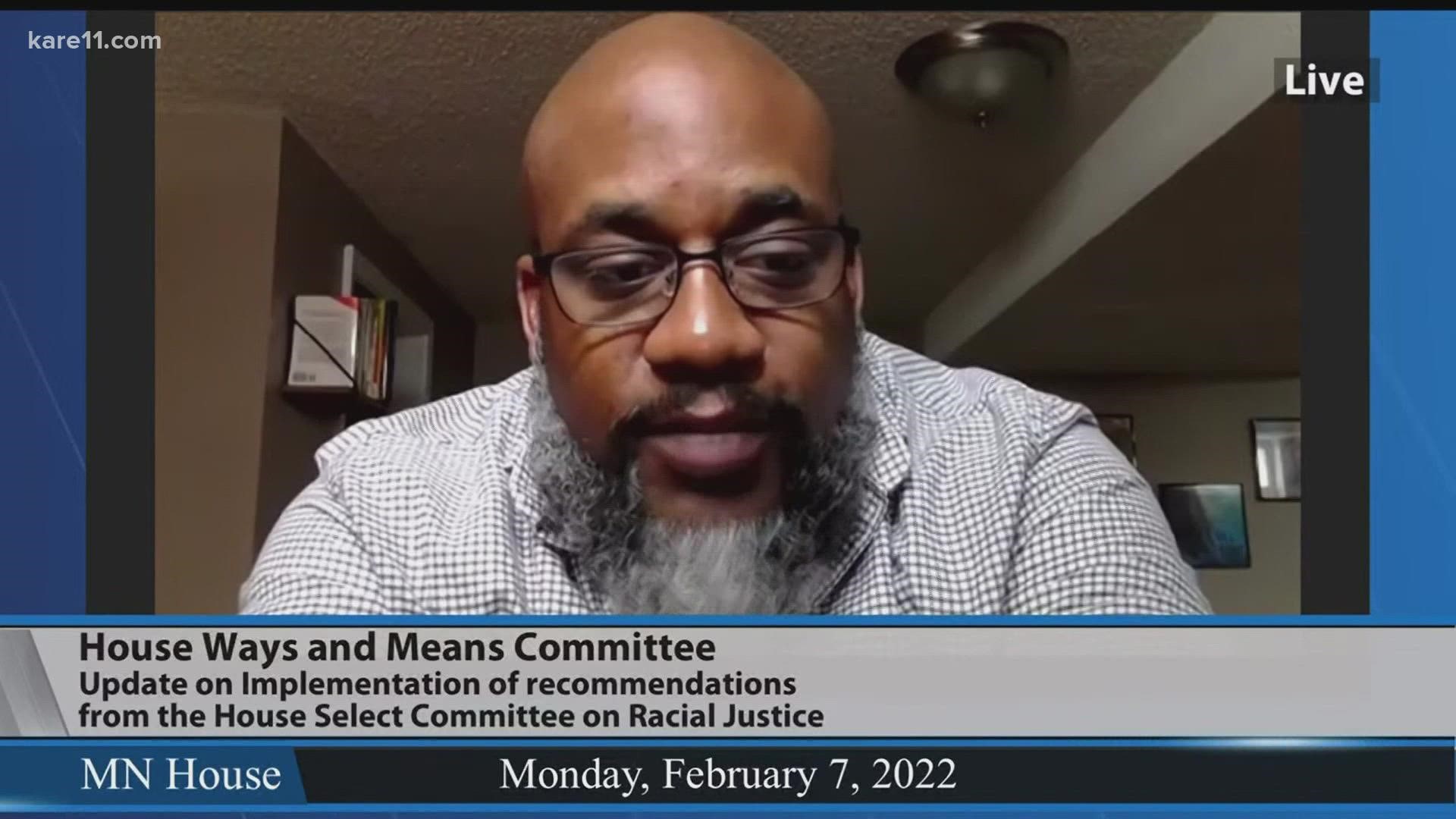ST PAUL, Minn. — A House committee Monday heard an update on how lawmakers have fared in efforts to reduced racial disparities that exist in many aspects of society, gaps that appear to be particularly pronounced in Minnesota.
Rep. Rena Moran, the St. Paul Democrat who chairs the Ways and Means Committee, released an updated report on disparities and scheduled several witnesses representing the fields of education, psychology, healthcare and criminal justice.
"It's important that we know what those solutions can look like and the impact they can have on strengthening individuals and families and communities," Rep. Moran told her colleagues.
In the days after the murder of George Floyd in May of 2020, lawmakers who identify as persons of color vowed to put the issue of Minnesota's racial disparities front and center at the State Capitol.
Later that year the Minnesota House passed a resolution declaring racism to be a public health crisis in the state. It passed by a vote of 82 to 40. In the same resolution lawmakers committed to actively participate in the dismantling of racism through a variety of actions.
The select committee issued a detail report in December of 2020, laying out dozens of recommendations for closing the gaps in income, employment, education, healthcare, housing and criminal justice. The report also noted how so many of those factors intersect with one another.
As part of Monday's hearing, Rep. Moran released an updated report that included more information from experts on how to approach those inequities and steps lawmakers and other policymakers can take to prioritize closing the gap.
There were examples of progress in several areas. For example, an increase in MFIP payments, the state's safety net public assistance program. Lawmakers also increased payments to Personal Care Assistants, or PCAs, who help persons with disabilities function more independently.
The state also expanded postpartum services coverage available through the state's Medical Assistance program. There was also a boost to rates paid to providers in the state's childcare assistance program.
Justin Terrell of the Minnesota Justice Center listed several steps lawmakers took in the past two years in an effort to address the disparities in criminal justice outcomes faced by Minnesotans who identify as Black, Indigenous or persons of color, or BIPOC.
Those included:
- Civil asset forfeiture reform
- Hardel Sherrell Act - stronger reporting and inspection requirements for correctional facilities
- New regulations for “no-knock” warrants in drug cases
- “Sign-and-release” warranting authorized for missed court dates
- Reforms to keep incarcerated mothers and babies together
- Established the Office of Missing and Murdered Indigenous Relatives
But Terrell pointed to the fatal shooting of Amir Locke in Minneapolis Feb. 2 as a fresh reminder of the hazards faced by Black persons.
"The killing of Amir Locke reveals the failure of the criminal legal system to make decisions in the interest of public safety to protect life," Terrell told the panel.
Terrell and Elizer Darrius of the Minnesota Freedom Fund both listed cash bail reform as a top item on the legislature's to-do list.
The Freedom Fund is a nonprofit that pays bail for accused people who would otherwise remain jailed while awaiting trial or a final disposition of their case. Darrius said nobody should sit in jail simply become of a lack of income.
But Rep. Marion O'Neill, a Maple Lake Republican, argued against doing away with cash bail at a time when crime is on the rise in Minnesota. She said young people who hold guns to victim's heads, and demand their cars, shouldn't be released from jail pending adjudication because they pose a public safety threat.
Rep. Jamie Becker-Finn, a Roseville Democrat who works as a prosecutor outside of legislative sessions, said cash bail reform isn't about setting dangerous people free. She said it's about ensuring the suspect's income, or lack thereof, isn't the only thing keeping them locked up in jail.
Rep. Moran and others pointed out it's not just a matter of raising up persons of color. Those disparities reverberate through society as a whole, they assert, holding back the economy as a whole.

